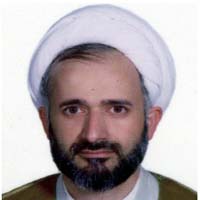The Role of Religion in Unity and Difference from an Ethical-Psychological Perspective
Author(s):
Abstract:
Religion as a twin phenomenon with the human race has had many functions in the social life of humans, including its effects on the unity and difference between them, which is the subject matter of the present essay. Analyzing this matter by an ethical and psychological approach is the aim of this paper. The research method is the case study of Islam and, in doing so, analyzing the content of Quran as the most important document of Islam. The findings of this study in terms of the factors and backgrounds of unity are ethical-psychological mediators like affection, mercy, peace, justice, charity, thanksgiving, listening to each other, and forgiveness. In terms of the factors and backgrounds of difference there are some other ethical-psychological mediators like unconformity, murder, Harassment, dispute, aggression, devil, espionage, and defamation. The results of this study show the strict advice of Quran about the unity factors and avoiding the backgrounds of difference.
Keywords:
religion , unity , difference , Islam , psychology , ethics
Language:
Persian
Published:
Revelatory ethics, Volume:6 Issue: 1, 2016
Pages:
5 to 28
https://magiran.com/p1597154
مقالات دیگری از این نویسنده (گان)
-
The obligation of parents to educate teenagers with an emphasis on independence in decision-making from the point of view of educational jurisprudence
Asiye Homa *, Masoud Azarbayejani
Scientific Journal of Islamic Education, -
Spiritual health scale based on Islamic sources
Masood Azarbayjani *, Ali Bayat
Journal of Studies in Islam and Psychology,



